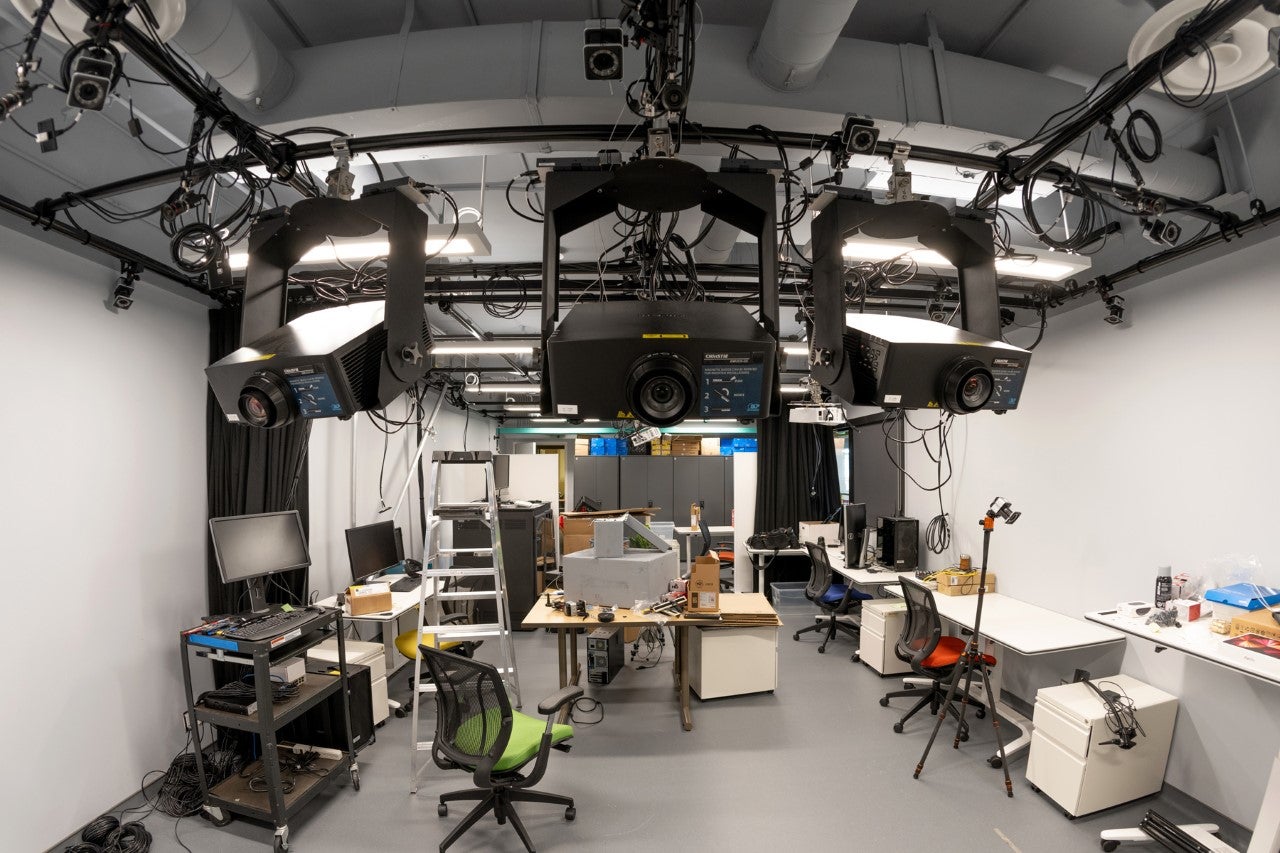
Industry-academic partnership drives innovation in computer science
Researchers from Cheriton School of Computer Science and Preferred Networks, Inc. collaborating on machine learning and human computer interaction

Researchers from Cheriton School of Computer Science and Preferred Networks, Inc. collaborating on machine learning and human computer interaction
By Jon Parsons Faculty of Mathematics
Fabrice Matulic
> Senior researcher, Preferred Networks, Inc.
> Assistant professor, Cheriton School of Computer Science
Fabrice Matulic is a senior researcher at Preferred Networks, Inc., a technology company headquartered in Tokyo, Japan. He is a former postdoctoral fellow in the Cheriton School of Computer Science, where he worked in the field of human computer interaction (HCI).
After leaving Waterloo, Matulic maintained a productive working relationship with researchers at the University, and specifically with Daniel Vogel, associate professor and Cheriton Faculty Fellow in computer science.
In recent years, their industry-academic partnership has resulted in a flourishing of research, providing enormous value to the University and to Preferred Networks. The collaboration is a case-study for how such partnerships can drive innovation.
“When I was looking at doing the postdoc, I knew Dan’s work and I knew we had a shared affinity for HCI,” Matulic said. “We both had this tendency toward creative projects combining technology, arts and science, so right away it was clear we could work well together. I always had an interest to work in industry, but I knew that even if I went to industry, I would like to continue working with Dan.”
Preferred Networks is a company that values research and was co-founded by a researcher. Its main business is currently in the development and sales of software, hardware and network technologies that incorporate deep learning and other advanced technologies.

Daniel Vogel
> Associate professor, Cheriton School of Computer Science
> Researcher in human computer interaction
“Preferred Networks is a cutting-edge technology company that places a significant value on enabling and supporting future-forward research,” Vogel said. “Their values perfectly echo the values of UWaterloo, so this partnership is quite natural and makes a great deal of sense.”
It is also a company that offered the perfect opportunity for Matulic to combine his passions for creativity, research and business.
“We have a substantial research focus,” Matulic said. “But we are also a business that needs to be self-sufficient and generate revenue. The research isn’t a side project, though. It’s actively helping grow the business and engage with the tech community. For me, it’s a happy balance.”
Because of the extent of his work with Waterloo and the value he brings, Matulic has, since the beginning of 2022, officially been made an assistant professor at the Cheriton School of Computer Science.
“We’re excited that a world-class HCI researcher like Fabrice is now officially part of UWaterloo computer science and the HCI Lab in particular,” said Vogel. “His expertise and experience will be extremely valuable for graduate thesis committees, and this will no doubt lead to even more exciting research collaborations.”
This appointment makes things easier administratively, but the professorship is also a respectful mark of distinction for a researcher who has done so much to foster collaboration and build bridges between industry and academia.
The research partnership is a boon for Preferred Networks, not just in the form of developing technologies, patents and intellectual property, but also because of the publications and awards Matulic and Vogel’s collaboration is bringing in.
“It’s a win-win situation both for the university and the company,” Matulic said. “Look at the results of the collaboration. It’s a model that works for my company and it’s a model that works for the university. And it’s breaking new ground in HCI and other fields. This is incredibly valuable.”

The Human Computer Interaction Lab in the Cheriton School of Computer Science.
Creating the research partnership between Preferred Networks and the University of Waterloo also had a more formal side than just the two researchers and their affinity for HCI and machine learning. Issues of intellectual property, liability and other concerns became part of the equation, and the company and the university found practical ways to make the arrangement airtight.
“Right away, I pushed within my company to be able to work with Dan and to have him officially be a researcher with whom I could share internal company information,” Matulic explained. “We asked Dan to sign an NDA and a basic research agreement so that I could tell him ‘Hey, we’re working on this at the company.’”
On the side of the University, the Research Partnerships team within the Office of Research facilitated a process to allow Vogel and other researchers to share information with Matulic and Preferred Networks. Matulic said that Jennifer Ranford, a senior manager for research partnerships, found ways to overcome any hurdles they encountered while formally setting up the collaboration.
“The way it works now that everything is in place is that I can bring Dan in if I’m working on a project where I’d like to get his input and benefit from his expertise,” he said. “With the projects from Waterloo, it’s either working directly with Dan or with some of his students, often on projects that have machine learning or deep learning components.”
Check out some of Matulic’s research projects and ongoing partnership activities on the HCI website. Learn more about Preferred Networks, Inc. on the company website.

Read more
New program recognizes users' hands beside or near the keyboard and prompts operations based on different hand positions

Read more
Computer science PhD student launches company offering virtual reality streaming services

Read more
Computer science PhD student and pro squash player Cameron Seth sparks entrepreneurship with SethSquash platform
The University of Waterloo acknowledges that much of our work takes place on the traditional territory of the Neutral, Anishinaabeg, and Haudenosaunee peoples. Our main campus is situated on the Haldimand Tract, the land granted to the Six Nations that includes six miles on each side of the Grand River. Our active work toward reconciliation takes place across our campuses through research, learning, teaching, and community building, and is co-ordinated within the Office of Indigenous Relations.